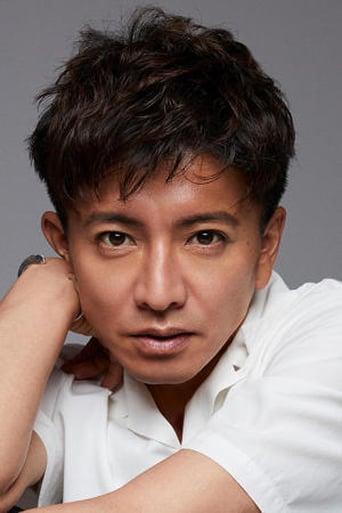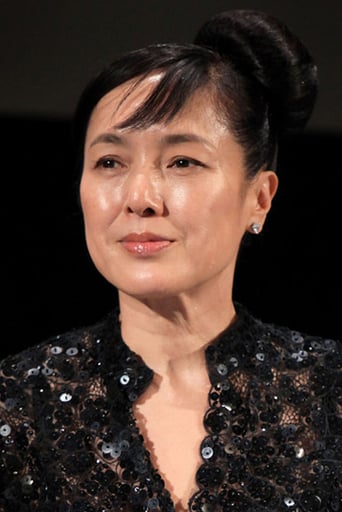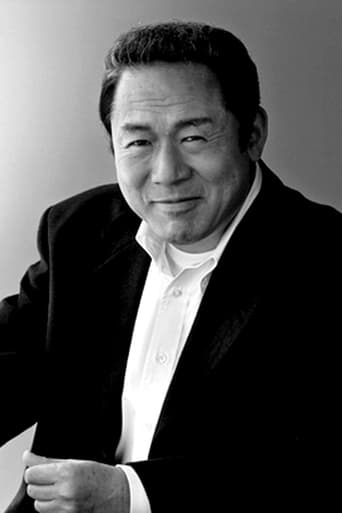Diagonaldi
Very well executed
Matialth
Good concept, poorly executed.
PiraBit
if their story seems completely bonkers, almost like a feverish work of fiction, you ain't heard nothing yet.
Logan
By the time the dramatic fireworks start popping off, each one feels earned.
e-70733
Both the setting of the theme and the creation of the emotional atmosphere tend to make the film more romantic. And exquisite detail guarantees the reliability that a drama about ancient Japan should have. Although the film mainly focuses on the daily life of a samurai, the director Yôji Yamada still gave a little bit of chivalric romance to the ending. However, there is no coexistence between the everyday life and the spirit of a samurai.
Therefore, the protagonist's choice finally writes a summary for this passing era.
WILLIAM FLANIGAN
Viewed on DVD. Subtitles = eight (8) stars; sets/decoration = eight (8) stars; "score" = six (6) stars; costumes = four (4) stars. Director Youji Yamada's uninspired slice-of-life Shomin Geki (home drama) involving a castle-commuting samurai rendered blind from tasting poisoned food before it is served to the feudal lord (of, presumably, Osaka-Jo castle). The plot line of this tale offers a fascinating possibility which is toyed with, but discarded by the Director (to wit, the emergence of a skilled and renounced swordsman who uses sound rather than vision to vanquish his adversaries). Instead, Yamada provides a well-telegraphed (fully-expected), romantic happy ending (and a circular story). Acting is fine with overly melodramatic tendencies kept in check by Yamada. Costumes are bland, but sets and the decoration thereof are excellent. Film score is intermittent aside from the opening and closing credits; it consists essentially of one beautiful and haunting Leif Motif. Surround sound field is excellent, but sparsely utilized. Cinematography (semi-wide screen (1.85:1 aspect ratio), color), lighting, and editing are very good. Another Shochiku Studio middling programmer. WILLIAM FLANIGAN, PhD.
ebiros2
Others have commented on the story so I will skip the synopsis.The story is about human drama, and the unusual talent the main character has that leads to bombastic climax. This is typical Shuhei Fujisawa's style, and this story is no exception.What took away from the story compared to other Shuhei Fujisawa based movie is the poor acting by Takuya Kimura. His impatient and jittery personality shows in his acting, and the poor ways he speaks the dialog all takes away from the proper mood of the story. As the member of SMAP - a Japanese idol group, his acting DNA was bread for more modern situation, and probably isn't a good match for a period drama like this one. I couldn't get the feeling that this was a samurai living several hundred years ago. His poor dialog skill also was evident in more recent movie Uchuu Senkan Yamato as well. Another period piece starring his SMAP colleague Shingo Katori's "Zatoichi The Final" was also a flop, attesting to the mismatch of SMAP member with samurai movies.So the main focus was weak, but the movie still has quality all its own. The sword fight scene was superb like other Fujisawa novel based movies. As a samurai movie, this is still one of the best in recent years, and is recommended along with other Shuhei Fujisawa movies such as Hisshiken Torizashi, and Hana no Ato.
kichiverde
This film is the third of Yoji Yamada's samurai films, each a retelling of famed Japanese author Shohei Fujisawa's short stories. This time around we are given a title character (Shinnojo Miura) who is married but unhappy with his life. For one, he takes no satisfaction in his job as a food taster and wishes to open up a sword school for children. However, his dreams never come to fruition due to a sudden illness that leaves Shinnojo blind for life. The story thus follows his tribulations as he comes to terms with his condition and how it changes his relationship with others.For a samurai story this film has very little fighting. It takes place during the Edo Period which was a time of relative peace where samurai were mostly incorporated in to society as bureaucrats and public officials. This follows along the lines of the other two films by the same director (Twilight Samurai and Hidden Blade). Unfortunately, this third entry does not measure up in terms of story and acting. The main actor, Takuya Kimura is a passable actor but he lacks the defining qualities that convincingly show the subdued emotion and stoic mannerisms of a troubled samurai. Moreover, the climactic payoff at the end falls short because it is very predictable. If given the choice to see a samurai film go with Hidden Blade first, then Twilight Samurai, and finally this one.





